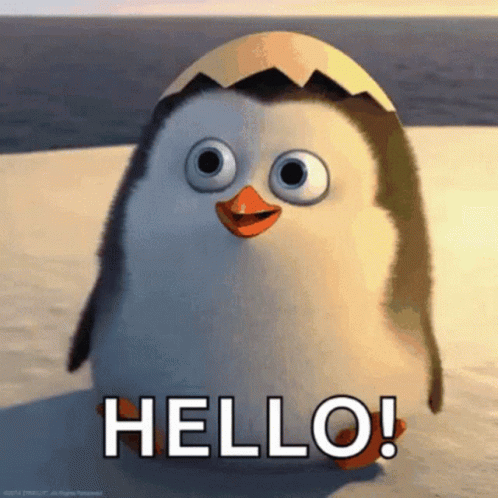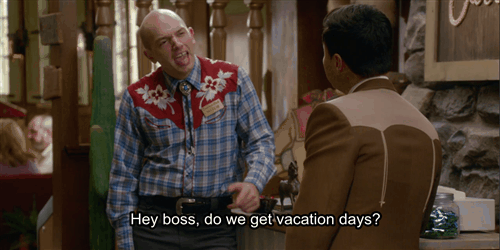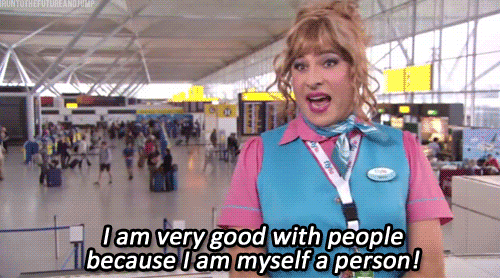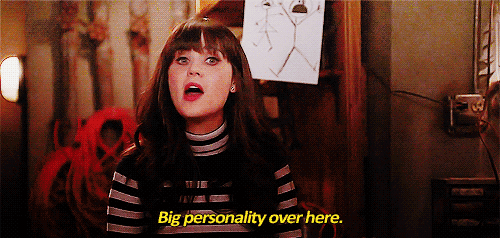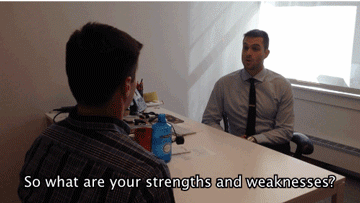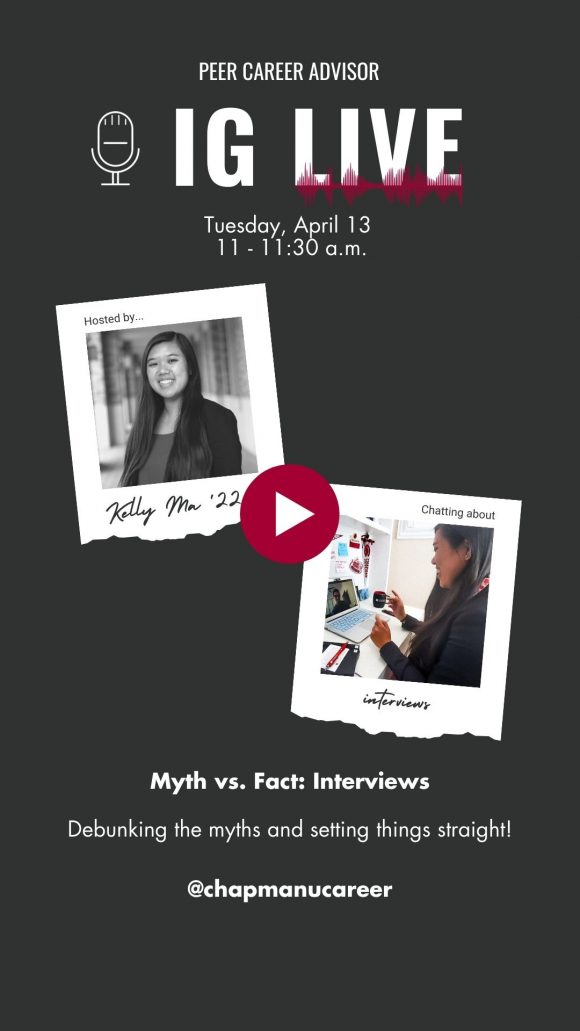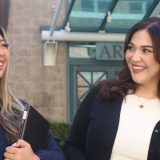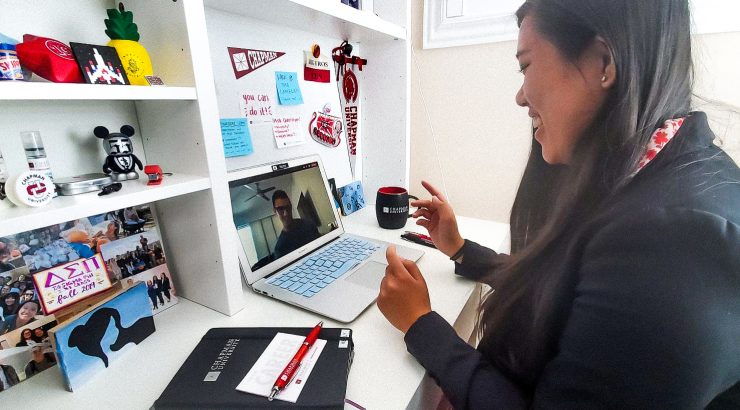
Myth vs. Fact: Interviews Debunking the myths and setting things straight!
April 2, 2021
Watch the Peer Career Advisor IG LIVE conversation on this topic on @chapmanucareer IGTV
You probably didn’t ask for it, but here it is – another addition to our Myth vs Fact series! This time, we’re looking at Interviews! Below are some myths and facts that will help you start off the interview process on the right foot to score your next internship or land a great job opportunity!
1. I don’t need an elevator pitch ready because they already have my resume: MYTH
Don’t take it off the table just yet! Having an elevator pitch can actually be very useful. If you have been in an interview before, then you know that first question many employers ask and so many students dread…. “So tell me about yourself.” I know, I know:
We get so many questions from students asking how to approach this answer. Our advice? Treat it like an elevator pitch! Let them know who you are, what you’re passionate about, what experiences and skills you have, your vision for yourself and your goals, and what led you to be sitting across from them (in-person or virtually)!
Quick Tip: Your elevator pitch should be short enough to present during a brief 30-second elevator ride. It is a way to share your expertise and credentials quickly and effectively with people.
Highlight what you want them to know, and don’t be nervous. They just want to start the conversation and see what you believe is the most important thing(s) they should know about you!
A great piece of advice I heard from a recruiter is not to repeat what is on your resume in this question. Instead, tell them something new so that they know there is more to you than just what is on a sheet of paper. Remember, the resume already got you to the interview, so show some of that fantastic personality you got! I recommend practicing this question because once you have it down, you’ll feel much more confident approaching the remaining questions in your interview!
2. Your first impression for an interview happens before you even walk into the room (or Zoom room): FACT
Whether you are in person or on Zoom, it is always important to keep in mind the type of impression you want to make. Before your actual interview, remember that you still go through a series of interactions that can reflect who you are, and recruiters will see that. They can somewhat gauge your oral and written communication skills via emails and phone calls leading up to the interview based on how and when you respond to them to set up the interview.
Showing up on time for your interview is basic but equally important. If it’s an in-person interview, remember that the interviewer isn’t necessarily the only person you interact with. There might be a receptionist, assistant, or other employees that can observe you, so make sure you are professional and prepared! Most people remember all the negative impressions, not always the positive ones. So if you don’t make the best impression, that may stick. Just remember to give yourself enough time before your interview to relax, take a few deep breaths, and tell yourself you are prepared and AWESOME.
3. There is absolutely no way I can predict what the interview will be like: MYTH
There is this magical thing called the internet – not sure if you have heard of it before, but it’s pretty amazing. It can do all sorts of things! One of the great benefits of the internet is that you can find helpful information and people who can answer your questions.
If you are preparing for an interview and keep thinking, “ugh, I wish I knew what it was going to be like!” Well, here are two suggestions to help you out!
1. Read reviews on how companies interview applicants. You can find some of these on Glassdoor.
If you do a little research, you can sometimes find information on how companies conduct their interviews. Some individuals anonymously review their experience, and some great companies out there take that feedback to improve their process!
2. Network and ask for an informational interview from a current/past employee! (This is my personal favorite).
There are so many ways you can network and build relationships. One of the benefits of expanding your network is getting to know individuals from different industries and companies. If you know someone at a company you’re interested in, ask them if they can meet with you so you can ask a few questions about the interview process and company! If you don’t know anyone where you are applying to – that’s okay! You have another handy dandy tool to use – us! Chapman has a large alumni and employer network for you to utilize.
4. I should research before my interview: FACT
Yes!!! Please don’t go into an interview without doing any research. If you genuinely want the position at that company, you will do your due diligence. I’m not saying you should write a five-page report on their operations and marketing strategies but really make sure you at least know these things:
- Company overview (their product/service)
- Their mission/vision/values
- What they’re looking for in a candidate
- Company culture and norms
If you can’t find the information, maybe it can be a question you ask during the interview! A bonus favorite of mine is to look at their philanthropic work and what they do outside of work. I’m personally passionate about giving back to my community, and it’s one of the things I look for in a company. It serves as a great conversation topic and shows that I care about the company’s level of social engagement.
Besides a company’s website, here are other platforms you can check to do your research:
- Handshake
- Vault
- Glassdoor
- Yelp/Google Reviews (how a company treats their customers!)
I personally have used LinkedIn to do some background research on my interviewer to prep beforehand!
5. I should give as much explanation in my answers as possible: MYTH
Sometimes, short and sweet is best! There is no “minimum” or “maximum” time response length but don’t give them a two-worded answer or a monologue. Address the question entirely, of course, but if they ask, “Tell me about a time where you…” don’t go through all your experiences and tell them how each of them relates to the question. Just choose one and briefly expand; hit the main points and give your example.
Need help structuring your answer? Use the STAR method!
Situation: Briefly give context for your example and include just the necessary details.
Task: Explain what responsibilities you had and the tasks that needed to be completed involved in that situation.
Action: Describe the steps you took to address or improve the situation. Focus on what you and your role in that scenario.
Result: Conclude by explaining the outcomes of the situation and your actions. Explain what you learned and quantify your successes when applicable.
6. I should come prepared with questions of my own: FACT
There’s a 99% chance your interviewer will ask if you have any questions, and the biggest mistake you can make is saying, “No, I’m good, thanks.” The question itself is a test so interviewers can see where your mind is and what you’re thinking about. There is always a question to ask… even if you may already have the answer from the research you did beforehand, ask something! Anything!!! (Well, not anything, but you get my point). Here are some suggestions:
- What is your company’s stance on diversity and inclusion in the workplace?
- Are there growth opportunities, and what do they look like?
- Does the company engage with its surrounding communities?
- How would you define success in this role?
- Is there anything you’d like me to elaborate on?
- What are the next steps in the hiring process?
For more suggestions, check out our Interviewing Tips Resource.
Just never ask questions about how many vacation days you plan to take. That’s not a great look and demonstrates that you are already thinking about not working.
7. I only need to list my strengths and weaknesses; no need to elaborate!: MYTH
While you don’t want to go overboard and ramble on (like I mentioned in number 5), make sure to still elaborate on your answers. Don’t just say:
“My strength is being able to pick things up quickly, and my weakness is paying too much attention to detail.” Or…
Instead, elaborate on them – especially your weakness. You never want to end on a negative or something that makes the recruiter question you. My favorite way to structure my answer is by first stating my weakness and then letting the recruiter know how I am working to improve on it. Then, I end on a positive note with my strengths and how it helps me be successful in a work environment and how it can translate to what I could do for them.
8. I can even engage with my interviewer after the interview is over: FACT
Tip: Make your Thank You note more personal by including something you guys talked about during the interview!
Many people just go in for their interviews, come out, and then never speak to the person again. While, sure, there isn’t anything particularly wrong with that, there are still some ways you can boost your position against other candidates! Here are some ways you can still engage with your interviewer after your conversation with them:
- Send them a Thank You card to their office
- Email them a Thank You card/letter
- Connect with them on LinkedIn (make sure to write a short note when you invite them to connect)
Even if you don’t get the position, you still now have a connection within the company! Keep that relationship going, and who knows, maybe one day you can reapply with insider advice!
9. It doesn’t matter how I answer, “Is there anything else we should know about you?”: MYTH
Please don’t waste this question by saying, “nope, I’m good!” USE THIS OPPORTUNITY, TAKE IT!!!! To do what, though? Well, this question is your chance to get to say anything you are proud of that you didn’t get to mention on your resume or during your interview, reaffirm your interest in the position/company, etc. The main reason recruiters ask this question is to gain an idea of your personality, your self-knowledge, and your ability to communicate effectively. They want to know, after all of this, what is the candidate thinking about, what do they want to emphasize to show their passion? Use this moment to let your personality shine!
If that is telling them they should know you have a strong love for dogs and love that they are a dog-friendly environment, then do it! It might help them see that you’ll fit into their dog-centric family work culture.
10. Chapman’s Career Office has an interviewing resource I can use: FACT
Yup, Standout is a fantastic resource FREE to Chapman students and alum – just log in with your Chapman credentials! It’s a great way to practice those questions you’re nervous about asking and help you fine-tune your answers.
You get to choose from various interview practice sets based on the type of industry and position you’re aiming for, record your interview, and look back to help you pinpoint areas that need improvement! You can even send your recordings to others so that you can get additional feedback. It’s a great resource, and I highly recommend checking it out!
Alrighty, that wraps it up! I hope you found these interviewing myths and facts helpful.
Want to learn more about other types of interviews? Check out Ivy’s post: All You Need to Know About Informational Interviews. It’s a great piece about learning the realities of working in a particular company or industry before making any career moves!
